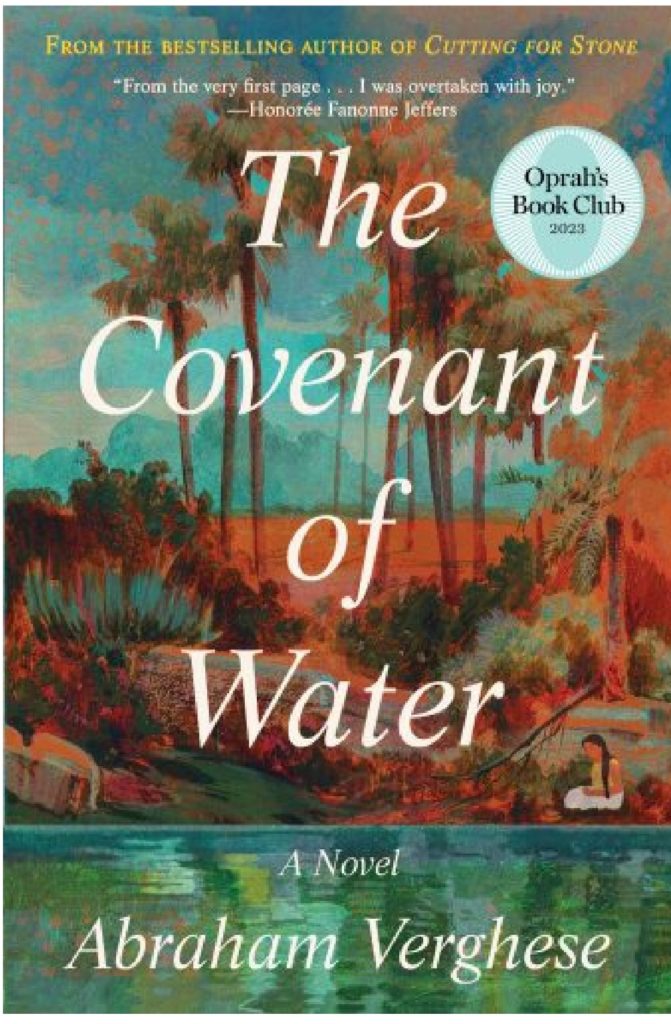Reviewer: Mary Ganguli, Pittsburgh, PA
For those familiar with the Indian American physician author Abraham Verghese (earlier books: My Own Country, The Tennis Partner, Cutting for Stone), his latest novel The Covenant of Water (Publishers: Grove Press, 2023, 736 pages) ) has been a long time coming. For those new to him, Dr. Verghese is a Professor of Medicine at Stanford University. Born and raised in Ethiopia by Indian parents, he attended medical college in Chennai and then emigrated to the US. Verghese is a master storyteller and has a way with words that draws the reader into his narratives which are beautiful but can at times be downright painful.
And now along comes his fourth book, The Covenant of Water, set mostly in Kerala during the first three quarters of the 20th century. It is a sweeping family saga covering generations of Malayalis (specifically St. Thomas Christians, Verghese’s own community) with the strange family history that one person in each generation dies by drowning. The book recounts its characters’ lives which become entangled in different ways, anchored in historical developments in India during those times; it includes medical, surgical, and obstetric themes skillfully tied into the narrative.
There are characters to be developed and mysteries to be solved and plots to be unraveled, mostly set in the lush landscapes of Kerala with its green rice paddy fields and flowing rivers and backwaters. As one would expect, a few of the characters are doctors. While reading the book I often wished the author had provided a family tree, but eventually realized why that was difficult. Take notes if you need to! Despite the complexity of the plot, and the multiple story lines that have to converge, Verghese keeps the reader engaged. The main reason is the captivating story, but another is the obvious love with which he crafts his descriptions of scenes and sounds of his native land.
Another is the sheer richness of his language; a small description I cannot get out of my head is his description of an embankment covered with touch-me-not flowers – thottaal-vaadi in Malayalam – that tremble like a shy colt when touched.
Of course, there is more to the book than the story. For me, as a Malayali who attended medical college in Tamilnadu, it is impossible not to be delighted by recognizing familiar places and sounds and experiences. I suspect readers from other parts of India will experience the book differently and enjoy the descriptions in a different way. American readers not of Indian background will of course find it exotic as well and perhaps start looking for tourism opportunities in “God’s Own Country.”
In the spirit of full disclosure, I saw a very early draft of the novel, provided some information and comments. ∎


